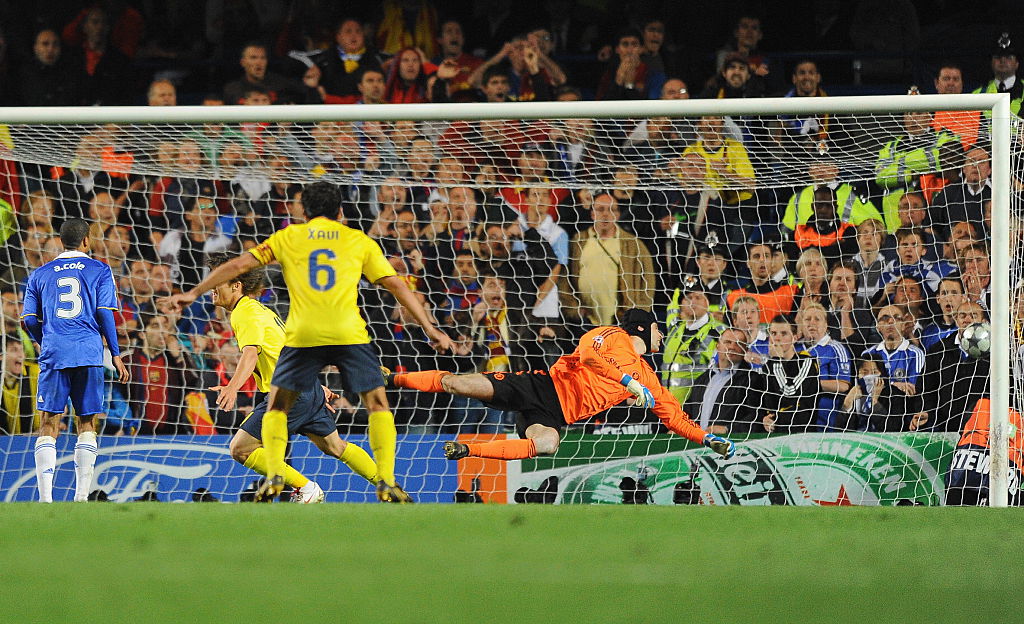Ranked! The 100 best football players of all time
The 100 best football players who have ever lived: from Messi to Maradona, Cristiano to Cruyff and everyone in between
20. Paolo Maldini

Very few players reach the vaunted 1,000-game mark. Even fewer do so as a mainstay at one of European football’s gilded heavyweights. Maldini did both, winning seven league championships and a frankly staggering five European Cup/Champions League titles in the process. All the while he embodied the Milanese notion of grinta – ‘grit’ – but without sacrificing more typically Italian qualities of suave, refinement and immeasurable handsomeness.
His only relative disappointments came with Italy, who finished runners-up at the 1994 World Cup and at Euro 2000 (although his own displays were impeccable in both tournaments). If his retirement in 2009, at the age of 40, was proof of the inevitable effects of time, then the previous 25 years were equally good evidence for the very opposite: a player for whom age only served to sharpen his exquisite talents.
Career highlight: Helping Milan go unbeaten to win Serie A in 1991/92, while reinventing himself multiple times during his career.
19. Zico
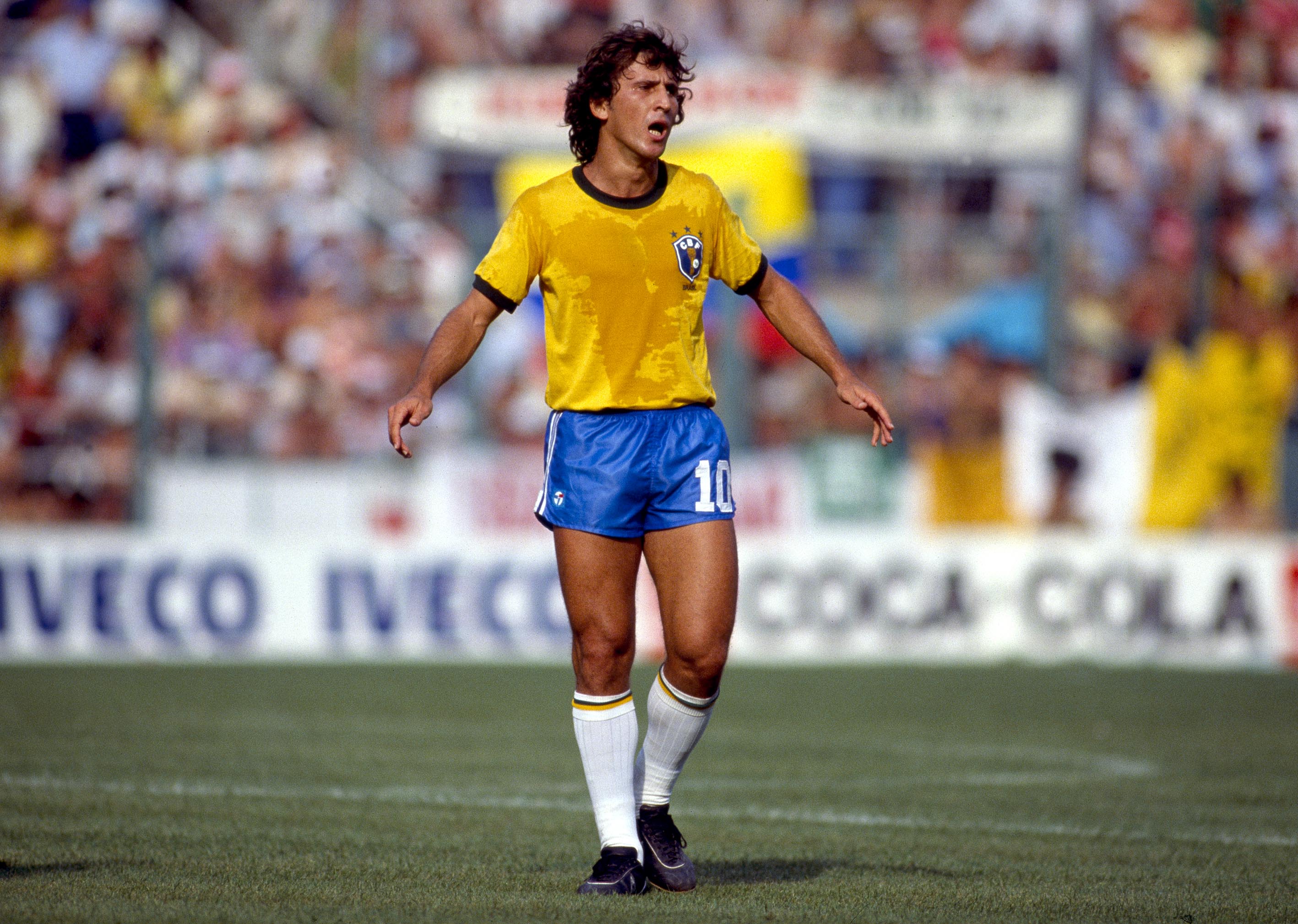
He’s the greatest Brazilian to never win a World Cup. Pele once said: “The one player that came closest to me in playing style was Zico.” He scored 333 goals at the famous Maracana stadium alone and guided Flamengo to four league titles, one Copa Libertadores and another Club World Cup in the '80s.
While Brazil's memorable World Cup campaign in 1982 ended in disappointment, Zico scored four times in his five appearances and was named in the team of the tournament. He also played in the 1986 World Cup, but was far from fully fit as Brazil lost to France in the quarter-finals.
Despite this, Brazilian fans would wish each other Happy Christmas to celebrate his birthday every March 3. You definitely don't get that for nothing, either.
Career highlight: The midfielder’s four goals in five appearances at the 1982 World Cup, even if it didn’t end with the trophy.
Get FourFourTwo Newsletter
The best features, fun and footballing quizzes, straight to your inbox every week.
18. Lothar Matthaus
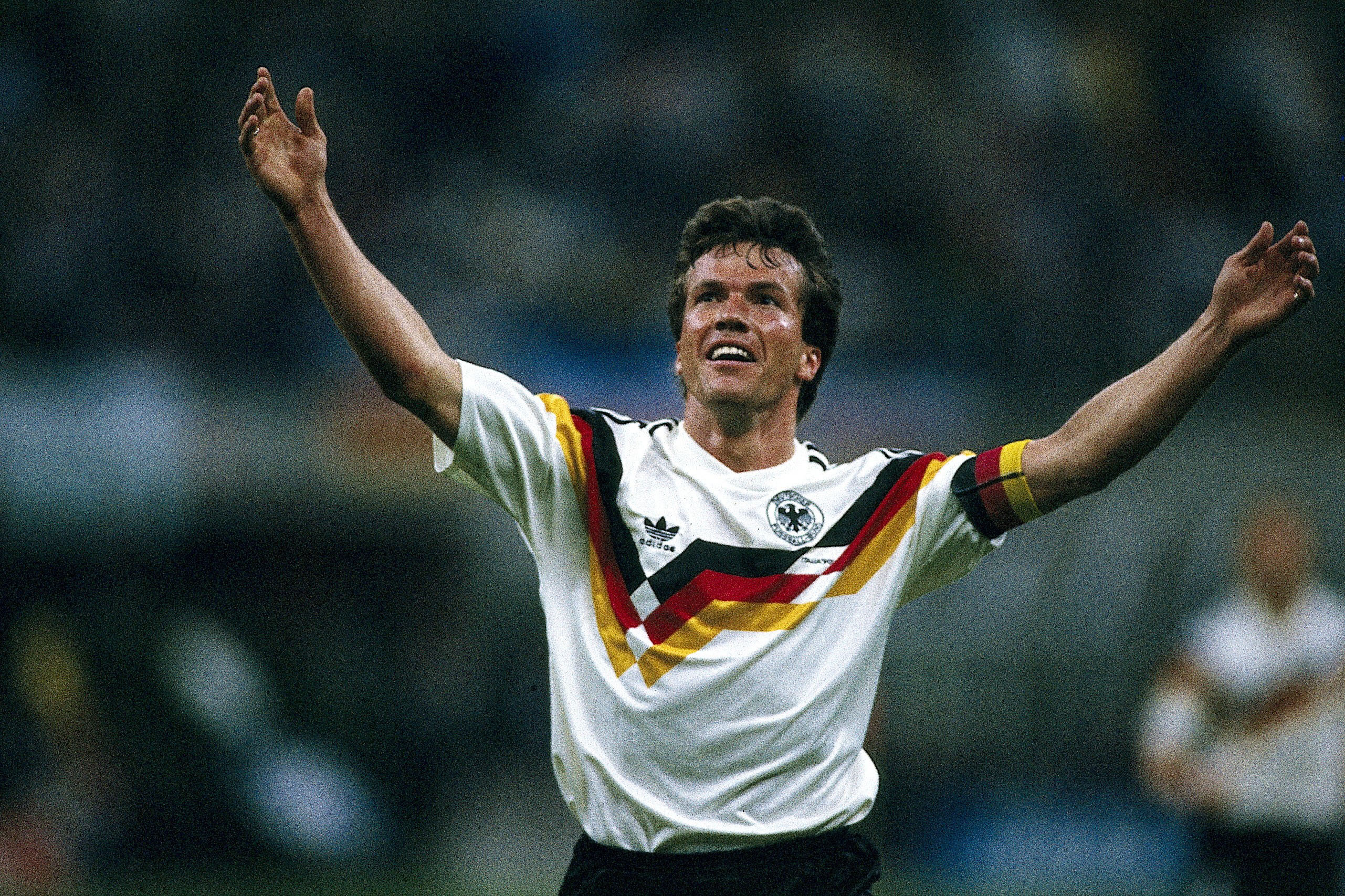
An all-action midfielder who combined ferocity and finesse without compromising on either, Matthaus was a rampaging engine-room presence who was described by Diego Maradona as his toughest opponent.
His heyday was as the poster-boy of the Germanic domination of European football in the late 1980s and early '90s, during which time he helped himself to 13 major club trophies, World Cup and European Championship medals, plus – to cap it all off – the Ballon d’Or in 1990.
Career Highlight: Captaining an impossibly suave West Germany side to victory in the 1990 World Cup, getting the ball rolling himself with two sumptuous individual goals against Yugoslavia in the opening game.
17. Garrincha
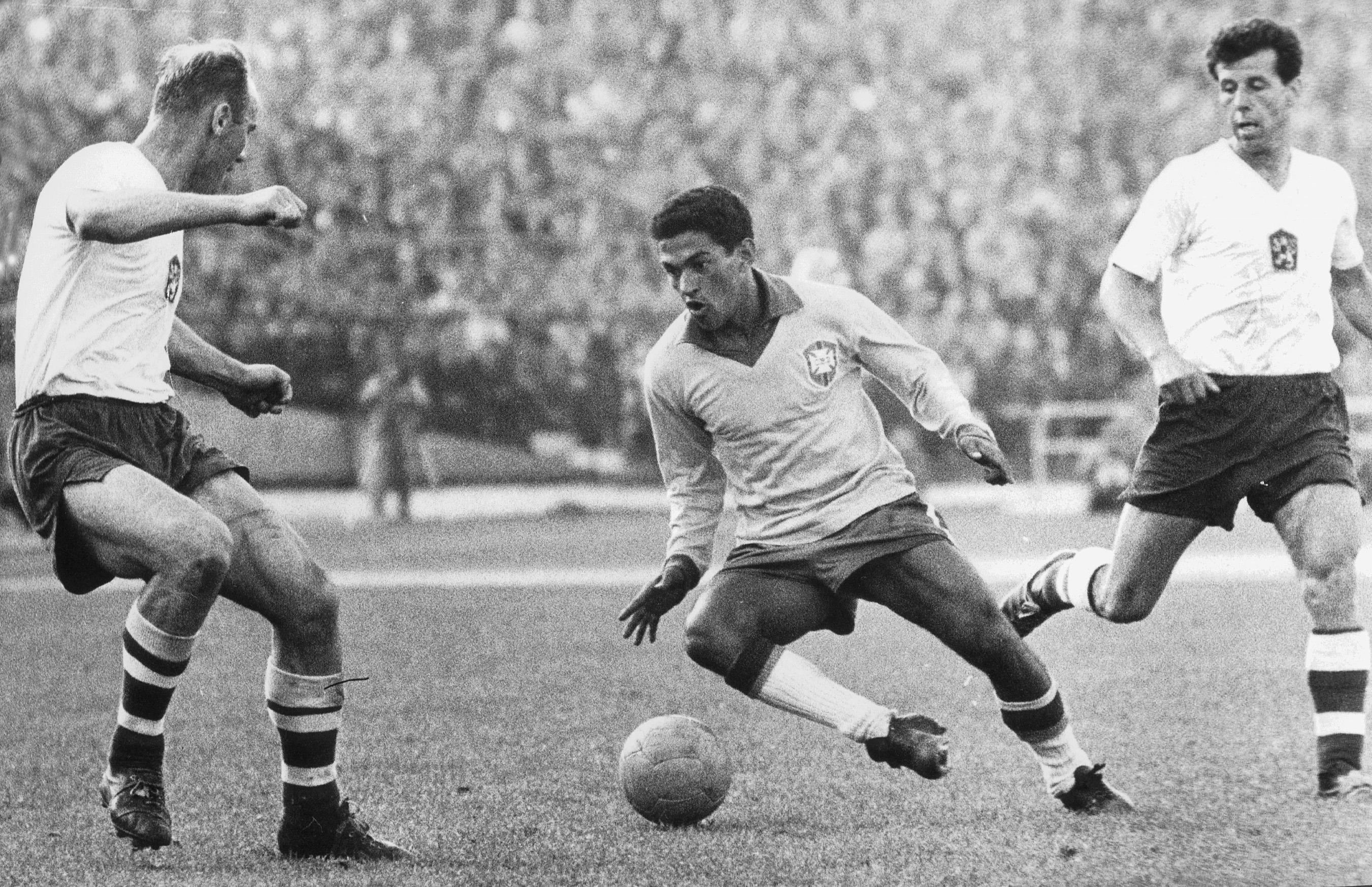
“In the entire history of football no one made more people happy,” said Uruguayan writer Eduardo Galeano. He was speaking about an angel. Not an ordinary one, but an angel with bent legs (in Portuguese, um anjo de pernas tortas).
Garrincha had several birth defects. His spine was crooked. His right leg bent inwards. His left leg was six centimeters (more than two inches) longer than the right, and curved outwards following childhood surgery. And yet, the Brazilian thrived on the football pitch.
Garrincha’s favorite trick was to run off, leaving the ball behind but taking his marker with him. He would return and do it again and again, before eventually going forward with the ball, leaving the duped defender stood still.
Struggling with his knees at the end of his career, his drinking caught up with him. He died at the age of just 49, leaving three ex-wives and 14 different children – one of them in Sweden – behind. Yet in Brazil, the angel is best remembered by his other nickname: Alegria do Povo. The Joy of the People.
Career highlight: After the Selecao lost Pele to injury early in the 1962 World Cup, Garrincha took hold of the team himself, ending as the tournament’s undoubted star man.
16. Eusebio
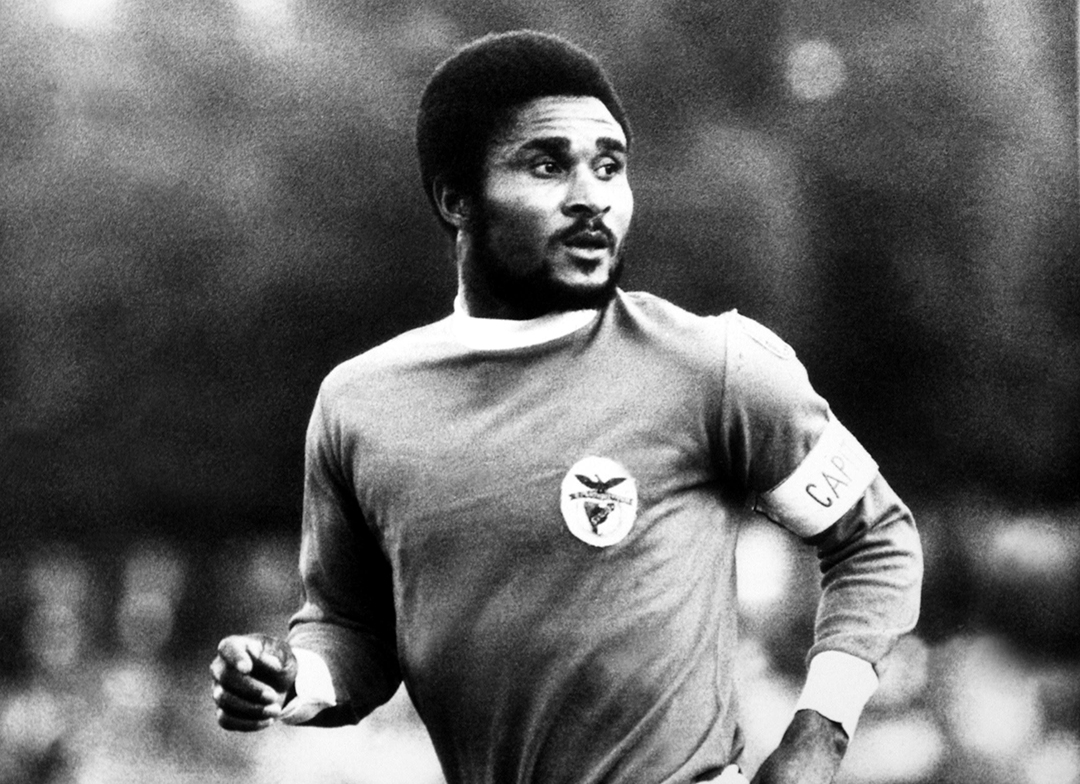
A goalscorer before his time, but also an athlete ahead of the curve. Eusebio was known as a near-perfect blend of speed and ability. Unanimously regarded as the first great footballer of African birth, he left his native Mozambique in the late 1950s to join Benfica. Between 1960 and 1975 he won 11 Primeira Liga championships, a European Cup and averaged more than a goal per game over six different seasons.
Although Portugal were ultimately knocked out in the semi-finals of the 1966 World Cup, he also won the Golden Boot and, until Cristiano Ronaldo's ascension, was inarguably the greatest Portugal international of all time.
Career highlight: For all of Cristiano Ronaldo’s achievements, only one Portuguese player has won the World Cup Golden Boot - Eusebio in 1966.
15. Andres Iniesta
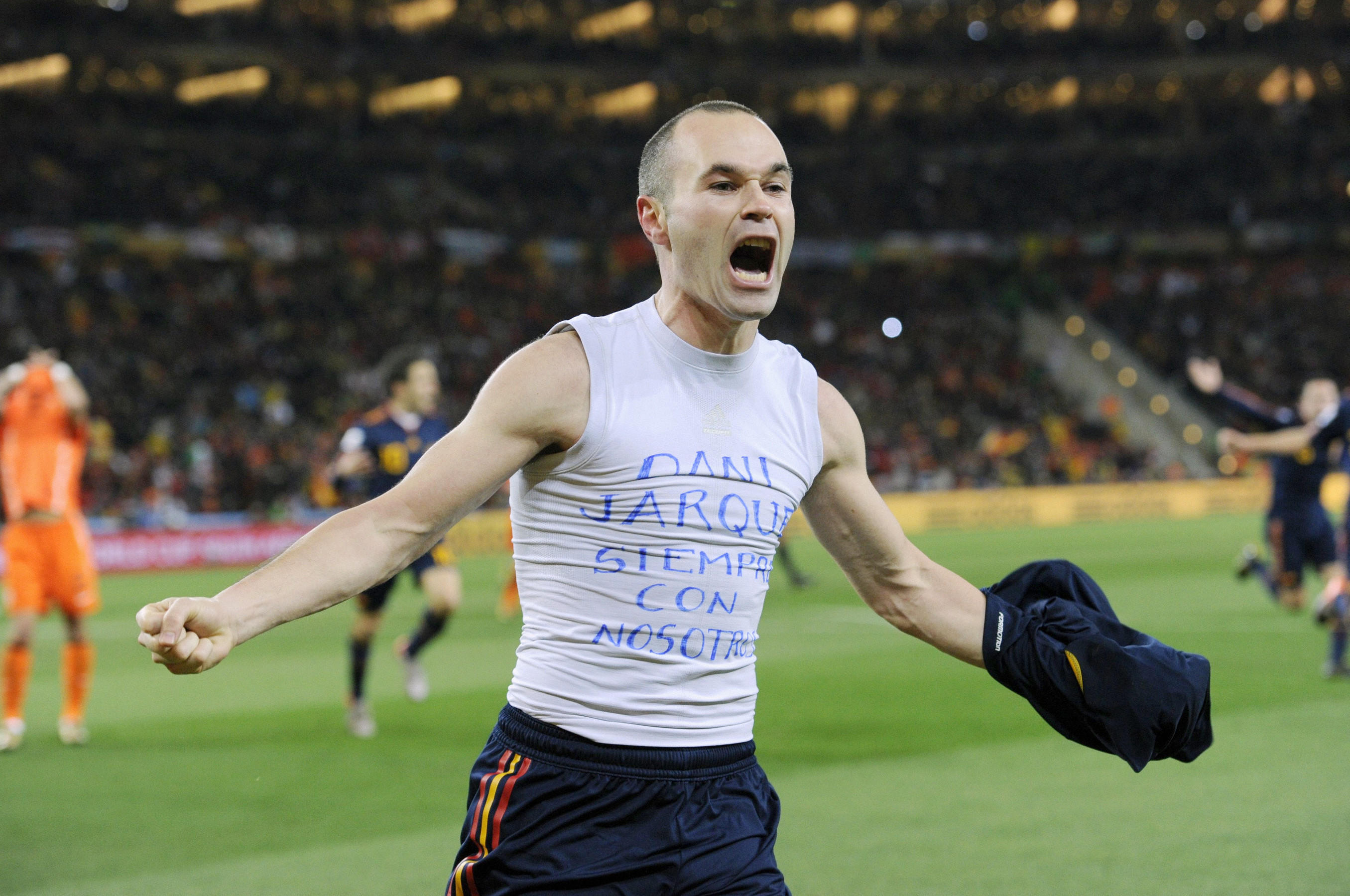
Football’s modern age has given us more exciting players, but few as gorgeously watchable. There was no way Iniesta would ever surrender possession – not just through the precision of his passing, but the meandering runs into the final third.
Deft touches with the outside of his foot became Iniesta's trademark, with sharp movements and minimal touches allowing him to escape any situation. He had an eye for a goal, too, scoring crucial goals throughout his career.
Career highlight: Guiding home the goal that won the 2010 World Cup, a strike whose chaotic build-up was punctuated momentarily by a cigar-puffing backheel from the man himself.
14. Michel Platini
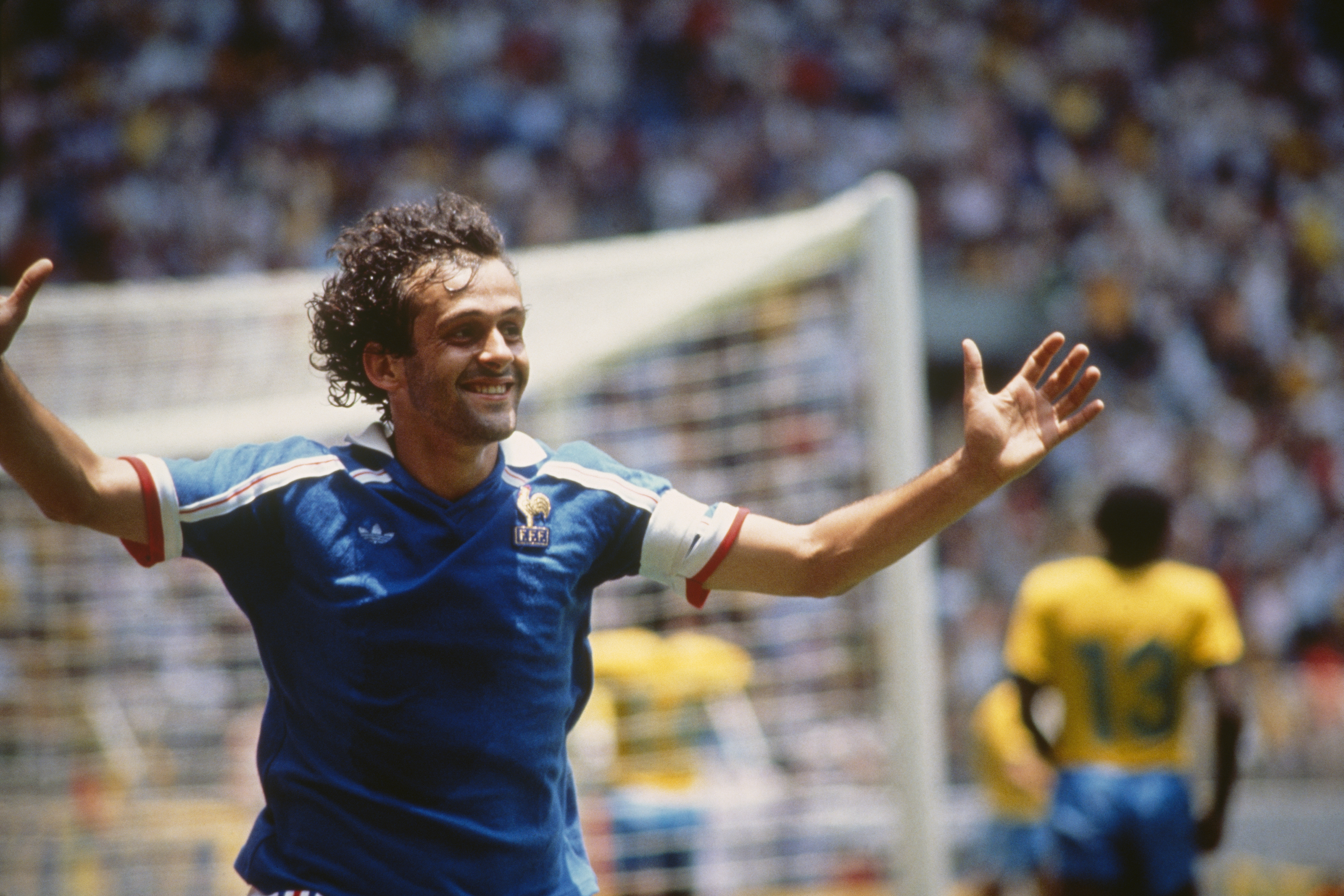
One of the most elegant midfielders in history, Michel Platini was deadly in front of goal, and possessed the mentality of a winner. That enabled him to excel everywhere he went, and to produce what was arguably the greatest-ever individual performance at an international tournament when he led France to Euro 84 triumph on home soil with nine goals in five matches.
Platini’s best games were saved for his national team, however, with whom he fronted of one of the best midfield trios ever alongside Alain Giresse and Jean Tigana. They came close at the 1982 World Cup, before dramatically losing to West Germany on penalties in the semi-final. Two years later, Platini was absolutely unstoppable during the Euros, scoring two hat-tricks against Belgium and Yugoslavia in the group stage, and eventually deciding the final against Spain with a free-kick.
Platini was the brightest star in the world back then, winning three Ballons d'Or consecutively in 1983, 1984 and 1985. Football lovers cried with him when France lost in the World Cup semi-finals again in 1986. A year later, he retired at the age of 32. It seemed a premature, cruel decision to the millions who got joy from watching him play.
Career highlight: Scoring the dramatic extra-time winner in France’s semi-final victory over Portugal at the Euros.
12. Ferenc Puskas
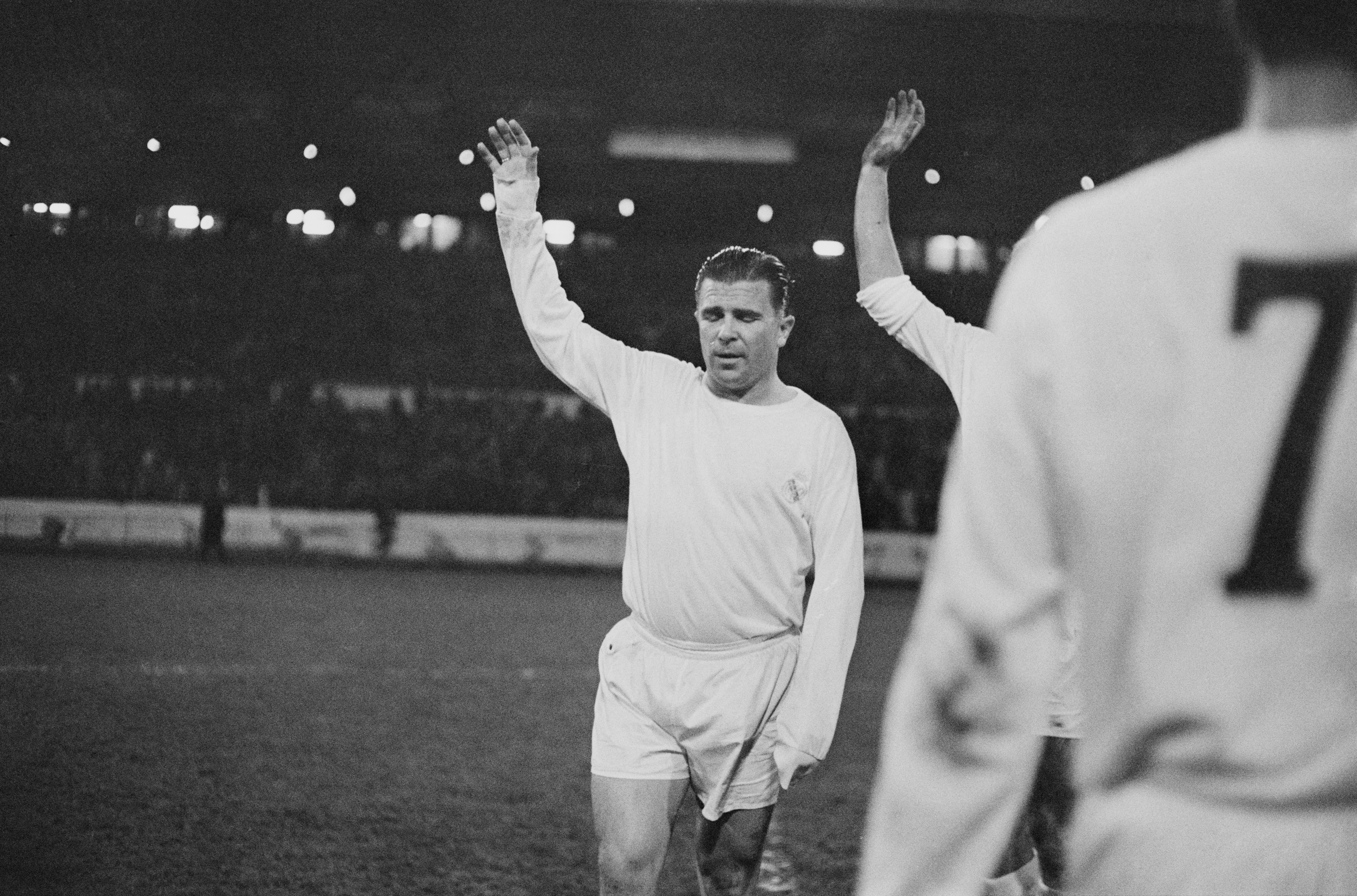
Puskas started playing for the national team aged 18, and found the net on his debut. Naturally: Puskas always scored. He averaged more than a goal per game throughout his illustrious career, including 87 goals in 85 caps for Hungary.
Four of them came at the 1954 World Cup, when Puskas proudly wore the captain's armband and opened the scoring in the final against West Germany after only six minutes. But sadly he wasn’t fully fit for that match, after sustaining a hairline fracture against the same opponents in the group stage. Hungary lost the final 3-2 in a notable upset.
After the revolution of 1956, he chose not to stay in Hungary and sought to continue his career abroad. Unfortunately for him, a subsequent UEFA ban meant it was a further two years before he was able to represent Real Madrid. He finally joined at the age of 31 in 1958, but still became one of their most prolific scorers in history with 242 goals in 262 appearances. His partnership with Alfredo Di Stefano was truly breathtaking, but he outlasted the great Argentine, staying until 1966.
Spain became his second country, and Puskas even represented them at the 1962 World Cup, albeit without success. His legacy is cherished in both Budapest and Madrid, and his unique style, scoring record and longevity confirm his place as one of the greatest players in history.
Career highlight: Taking England apart in Hungary’s 6-3 win at Wembley in 1953.
12. Gerd Muller
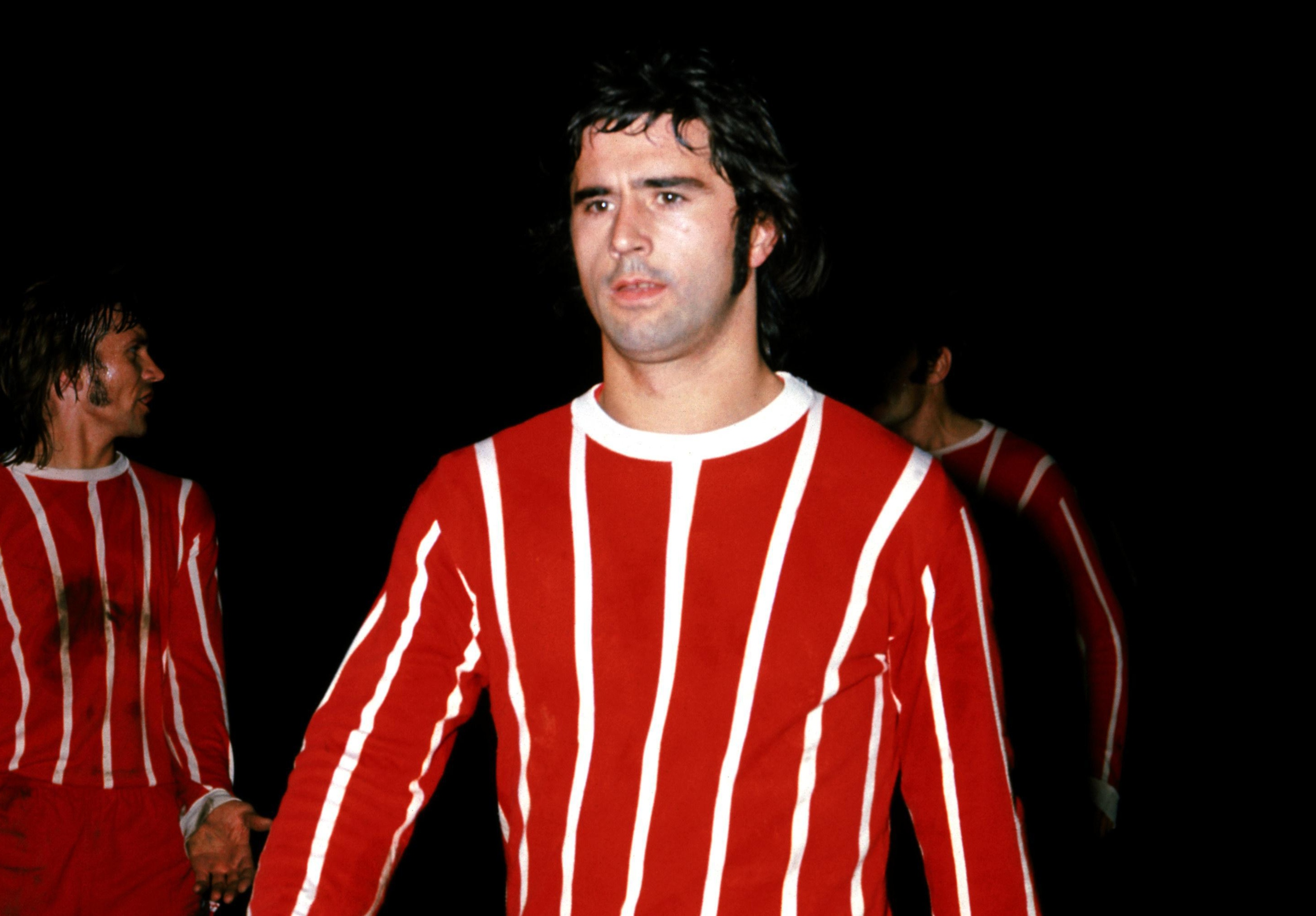
Quite simply, Gerd Muller was the greatest ever pure striker the world had ever seen. His technical skills were not sublime, and he was neither fast nor physically imposing, but the phenomenal German had the remarkable talent of being in the right place at the right time to put balls into nets. Nobody was capable of doing that like him.
His scoring record is astonishing. Muller netted 365 times in 427 Bundesliga matches for Bayern Munich, winning the title four times. He scored 40 goals in a single season in 1971/72. He then hit 67 goals in 49 games in all competitions in 1972/73. He scored in two of the three European Cup finals the Bavarians won between 1974 and 1976.
Muller was the top scorer at the 1970 World Cup with 10 goals in six matches. At Euro 72, he scored twice in the semi-finals against Belgium and twice more in the final against the Soviet Union as West Germany triumphed. Then he got the precious winner in the 1974 World Cup Final.
In short, he was unstoppable. Muller rarely scored brilliant goals and even looked a bit clumsy at times, but that didn't matter. His ability to react faster than anyone else around him, and to leap higher despite being under 5ft 10in tall, was breathtaking. Fans and team-mates alike adored his unique skills, which led to his nickname Der Bomber. There will never be another one like him.
Career highlight: After netting twice in the final of Euro 72, Der Bomber helped West Germany win the 1974 World Cup too, bagging the winner in Munich.
11. George Best

Best’s extraordinary natural talent not only made him one of the most iconic and entertaining players there has been, but the finest from the British Isles.
“If I’d been ugly,” he once said, “You’d never have heard of Pele.” Although that may be a stretch, it was an acknowledgement that, for all of his ability, his womanising stopped him from achieving even more.
It was in 1968 that, aged 22 – his pace, belief, technical ability, balance and creativity in perfect symmetry – Best deservedly followed the other two of United's ‘Holy Trinity’ (Bobby Charlton and Denis Law) in winning the Ballon d’Or.
Best had made his debut for United in 1963 - a boyhood Wolves fan, the Belfast boy was rejected by local club Glentoran for being too small. That didn’t look like a great decision, as the wide man soon began to take British football by storm.
“My best performance was for Northern Ireland against Scotland,” he once told FFT. “We were expected to get slaughtered, but we won 1-0. Everything I tried came off - I would have had about four goals, but for the keeper. For United, it was our win against Benfica in 1966 - I scored twice in 12 minutes.”
That European Cup performance in Lisbon prompted the Portuguese media to label him ‘The Fifth Beatle’ - two years later, he bagged the winner in the semi final first leg at home to Real Madrid, then laid on the assist for Bill Foulkes to clinch the tie at the Bernabeu.
In the final, against Benfica once more, it was Best who brilliantly rounded the goalkeeper to put United on course for victory. Not only did he win the Ballon d’Or, he also became the youngest ever recipient of the Football Writers’ Association’s Footballer of the Year award, after a season in which he’d scored 32 goals in 53 games.
United’s top scorer in the league for five successive campaigns, he netted a record double hat-trick at Northampton in the FA Cup in 1970, but the team declined around him, as off-field distractions began to take their toll on Best himself.
His last appearance for the club came at the age of 27, before he turned out for a random assortment of clubs - among them Dunstable, South African club Jewish Guild, Stockport, Cork Celtic, Los Angeles Aztecs, Fulham, Hibernian, Hong Kong club Sea Bee, Bournemouth, and Brisbane Lions.
“I was the one who took football off the back pages and put it on to page one,” was how he reflected on his career. Best had enough star quality to dominate both.
Career highlight: His performance in the 1968 European Cup Final against Benfica inspired the 4-1 victory that made United the first English winners of the competition.
Current page: The 100 best football players of all time: 20-11
Prev Page The 100 best football players of all time: 30-21 Next Page The 100 best football players of all time: 10-1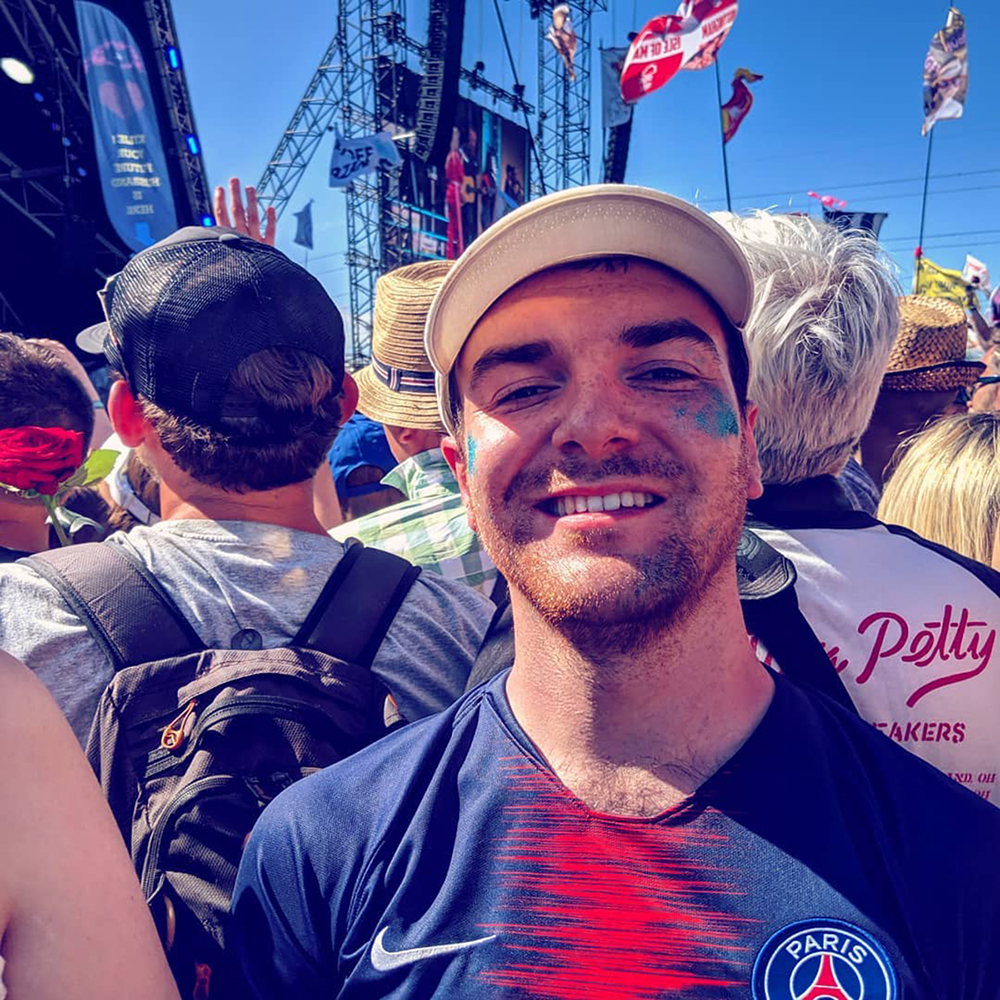
Mark White has been at on FourFourTwo since joining in January 2020, first as a staff writer before becoming content editor in 2023. An encyclopedia of football shirts and boots knowledge – both past and present – Mark has also represented FFT at both FA Cup and League Cup finals (though didn't receive a winners' medal on either occasion) and has written pieces for the mag ranging on subjects from Bobby Robson's season at Barcelona to Robinho's career. He has written cover features for the mag on Mikel Arteta and Martin Odegaard, and is assisted by his cat, Rosie, who has interned for the brand since lockdown.
- Alex Reid
- Alex Hess
- Marcus Alves
- Adam MonkPresenter/Producer
- Chris FlanaganSenior Staff Writer
- Adam Clery
- Declan Warrington
- Jon Spurling
- Michael Yokhin
- Thore Haugstad
